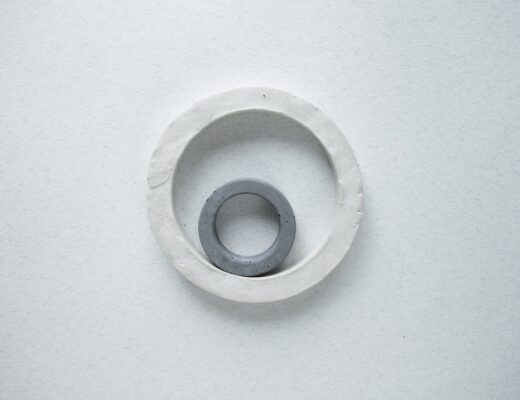Created by Mike & Mollie. Subscribe to our blog.
I can guess two things about you:
- You’re reading a blog post, so there’s a good chance that you’re at least an occasional reader of self-help advice.
- You clicked on this particular headline about living more intentionally, which tells me that maybe you feel like you haven’t figured it all out yet.
That’s ok. The first thing I’d want to say is that living an intentional life is a direction, not a destination. It’s a tool, not the measure of a life. Life is something to be received with gratitude, enjoyed, and lived with purpose— not a problem to be optimized.
In the post below, the type of intentional living I’m proposing is a type that strips away distractions and allows you to focus on what is truly meaningful and important in your life. I present it to you with a spirit of humility… we have much to learn from one another.
Why we fail to live intentionally
It is my experience that there are a couple of recurring obstacles when we make the decision to start living intentionally.
The first hurdle is that we risk floundering in a sea of possibilities. We have too many ideas about the kind of person we want to become. Or we get started along one path, but read a great book or article, and then get distracted in another direction. Part of this is driven by a great fear of missing out on something better.
The second hurdle relates to sustainability. We demand too much change too soon and take on way more than we can handle. We add many new habits and routines to our lives, but the whole system falls apart at the first signs of stress.
Finding solutions to complex problems
Here’s an idea I’ve become convinced of— when trying to figure out the solution to a complex problem (like “how to live intentionally”) the best place to start looking is towards what can be removed, rather than added.
Subtraction is much more robust than addition. What do I mean by that? Let me illustrate by a simple example.
Humans have always lived and worked in the sun. But in the past 50 years the rates of melanoma skin cancer climbed along with the sale of sunscreens. The two are positively correlated with one another.
When we started using sunscreen regularly (problem solving by addition), we also started exposing ourselves to new chemicals that weren’t time-tested. Some of them are now being linked to certain types of cancer. At the same time, we now have over 40% of the US population deficient in vitamin D. Whatever the outcome of these particular examples, adding anything to a complex system invites 2nd order effects that are hard to predict.
The safer option, in my opinion, is to become less reliant on sunscreen (problem solving by subtraction): look for shade, avoid the sun at the hottest parts of the day, wear clothing that protects your skin including a wide brim hat. Also, don’t spend all week inside your house and then all weekend roasting at the beach— expose yourself gradually in smaller doses. Wear sunscreen when you can’t safely protect yourself without chemicals. It’s that simple!
Intentional living by subtraction
This idea of removing or subtracting to bring about improvement works in many areas of life. It’s very similar to the concept of pruning a bush or a tree to make it stronger and to encourage new growth.
While you may be tempted towards making a bunch of improvements or additions in your life, the real secret is to focus. There’s a great Steve Jobs quote on the topic that goes like this:
“People think focus means saying yes to the thing you’ve got to focus on. But that’s not what it means at all. It means saying no to the hundred other good ideas that there are. You have to pick carefully.”
He’s right, of course! Being intentional isn’t about what you say yes to, it’s about what you say no to. It’s not about what you start doing, it’s about what you stop doing. Clear away the dead wood, prune the weak branches, and growth practically takes care of itself.
When you focus on removing— let’s say, your biggest distractions or your worst habits— you don’t get bogged down in a sea of possibilities or a long list of new self-help techniques to try. You’re also not overwhelmed by doing too much too soon, because removing is much simpler (and more robust) than adding something to your life. Everyone knows their biggest distraction and is intimately familiar with their worst habits. Until you’ve taken care of this low-hanging fruit, there’s nothing else you need to focus on.
Start pruning
If you’re ready to start pruning— here are a few areas to begin:
Remove distractions. What is currently eating up your time but not adding value in terms of true rest, enjoyment, or meaning? Remove these activities from your life, or reserve them for specific times. Maybe there’s something you enjoy, but find hard to control, try fasting from it for a season.
Remove your worst habits. There are a lot of unknowns when it comes to adding a new habit to your life: Where should I start? Will it stick? Where will you find the time? How impactful will the change be? This is a recipe for uncertainty and self-doubt. But you already know what your worst habit is and a good idea of the negative impact it has on your life. Addressing your worst habits is a safe and productive place to begin all personal change.
Stop reading self-help. Self-help books and blogs (like this one) can be a great source of initial inspiration and advice for making positive changes in your life. But I’ve noticed that many people get stuck at this step. Thinking and reading about changing their lives gives them a sense of control, without any of the hard parts. This is why I think it is critical advice that once you’ve decided to start living intentionally, and you have a general idea of the direction you’re heading, that you cut back on your reading and start doing.
Say no to good opportunities. There is no shortage of good and interesting opportunities to pursue in life. The reason that most people fail to live intentionally is rarely that they sit around and do nothing all day, but more typically that they are pulled in a hundred different directions and never really focus their efforts. Don’t be distracted by the next shiny thing that comes along— keep removing distractions, removing bad habits, and focusing on the few things that are truly important to you.
Take simple ideas seriously
If you want to start living intentionally, you need to give up on the idea that there is some magic formula that you haven’t discovered yet.
The secret is taking simple ideas seriously.
You don’t need to start by adding anything to your life, first subtract.
You don’t need more information, just get started!
🌿 Introducing, Declutter Your Life, a premium newsletter with monthly challenges to help you live a less cluttered life– inside and out.




